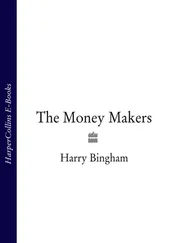‘ Where in his study? His desk? His cabinet?’
‘Oh yes. His desk, the cabinet. Luckily we had the keys. But we had to work fast. One day, we had everything, the next it was a knock at the door and this horrible young man with a leather coat telling us about the new decrees.’
‘You had the key. Who else?’
‘Oh, your father, silly! How else could he have opened them?’ Emma Ernestovna laughed out loud.
‘His secretary, I suppose?’
‘Leon? I suppose.’
‘And how did you happen to have one? Did he give it to you?’
‘Oh no, not me. Why should I have a key to his cabinet? Maria Fedorovna, the housekeeper, had a set of keys. That cabinet! Japanese lacquer. So nice, but the polishing!’
‘Maria Fedorovna had a key, did she?’
Misha’s mother said something in reply, but he was no longer listening. He felt a sudden shock of excitement. Because it was inconceivable that his father would have left his most important documents in a place where a servant could have access to them. It was almost as if the bundle that his mother rescued had been a decoy to draw attention away from the real ones. Misha jumped up.
‘Excuse me.’
He ran out, down the corridor and downstairs. His father’s study had been on the ground floor, behind the drawing room, a place of high bookshelves, cigar smoke, polished wood and leather. Of course, it wasn’t like that now. Two families had been allocated the room, and seemed to fight bitterly over the use of every square inch. A china pisspot tucked behind a curtain constituted the hygiene arrangements. A trail of slops led from there to the nearest window. But that wasn’t what caught Misha’s notice.
What caught his eye was a grey steel safe, bolted and cemented into the wall behind the panelling. The safe had only been exposed when the room’s inhabitants had begun ripping up the panelling for firewood. The plaster around the safe had been smashed off. Misha could see the pale marks where sledgehammers had struck. But the safe had withstood the assault. Steel bars protruding from the side of the safe were deeply set into the masonry. Misha had never known of the safe’s existence. Its sudden exposure reminded him of what his family must have been through in those first weeks of revolution, before his arrival home. No wonder his mother was in a state of collapse. Anyone would be.
He looked up, snapping himself out of this unhelpful change of thought. Both families, fourteen or fifteen people in all, were staring at Misha, grinning. They knew who he was, as did all the occupants of the house. An old man, a grandfather spat in the fireplace and cackled, ‘Come to say goodbye, eh?’
‘I’m looking for logs. You don’t have any, do you?’
The old man wasn’t deterred. He nodded back at the safe. ‘They’re coming to take it away next week. They’re going to put a tractor in the yard out there, run chains in through the window, then bang! Out it comes. It’s full of gold, they say.’
‘When are they coming?’
‘Tuesday. Wednesday. Who knows?’
That gave Misha three days, maybe four. Except he didn’t know the codes and he wasn’t a safe-breaker.
Tonya went with Rodyon the next day.
The Petrograd Soviet had issued a stream of housing decrees, making bold statements about minimum space requirements, light requirements, heat requirements, water and sewerage requirements. It was Rodyon’s job to see those decrees were implemented, or at least not wildly breached. All morning, Tonya watched him stride around his domain, backed by a flurry of lesser officials. And he did stride. He seemed to fly through his duties. Those with surplus space were reprimanded, spare rooms reallocated, disputes settled.
And, Tonya noticed, he was fair. He never victimised the rich. He dealt with them the same way as he dealt with everyone. And he lived by the standards that he set others. Like everyone else, he was thin and hungry, and Tonya could tell from his clothes that he slept in them for warmth.
All morning, they strode around. Tonya didn’t find any opportunities for barter. She didn’t know why she was here. She felt cross with Rodyon for wasting her day.
‘I thought you were going to help me find logs,’ said Tonya, when they broke for lunch.
‘Yes. But first I wanted you to see this.’
‘See what?’
Rodyon turned to her, his handsome face with its broken nose.
‘People grumble because our revolution hasn’t delivered the promised land overnight. But how could it? For centuries, the bourgeois have exploited the workers. For centuries, the landowners have stolen from the peasants. It will take many years to put that right. And that’s why it’s important not to lose a day.’
‘Why me? Why did you want me to see it?’
‘Why you?’ Rodyon smiled and his smile turned his face back into an enigma. ‘Because it’s important for everyone to understand. Especially young people. Especially intelligent ones. Especially ones with sparkling eyes and—’
He moved his hand towards her face. Instinctively Tonya drew back and he managed to convert his gesture into a cousinly pat on the shoulder. He smiled as though to laugh away his last sentence, and she smiled as though she accepted his dismissal of it. She felt confused and her confusion made her uncomfortable. She liked Rodyon; liked and admired him. He was a man with power in a world where power mattered. But Tonya still never quite knew where she stood with him. She’d had men – boys really – in love with her before. But then she’d known that love was love. The boys had been goofy with it, soppy with it, angry with it, overcome with it. But it seemed as though nothing would ever overcome Rodyon. He seemed to be a man who could never be mastered.
Rodyon finished his bowl of gruel with a grimace.
‘Well then, comrade citizen, let’s find you logs.’ His voice sounded harsh.
The next house was a big mansion on Kuletsky Prospekt. And there it was the same thing. Arrangements were checked, papers filled, orders given, disputes settled. In one room, bone cold even in the middle of the day, a steel safe was cemented into the wall, the marks of sledgehammers and crowbars fresh in the surrounding plaster.
And on the top floor, Rodyon whispered to Tonya. ‘Your bourgeois await. How you deal with them is up to you.’
The family concerned – a mother, a small boy and a young man about Tonya’s age – were living in two rooms of a former servants’ attic. Rodyon flashed through his interrogation, purposeful and disciplined. Only this time, his usual fairness had been replaced by something harder. Rodyon’s questioning had a cruel edge to it, a hint of the police cells. The young man, the son, answered for the mother. Tonya could see that he was taken aback by Rodyon’s attitude, but he nevertheless kept his cool. After fifteen minutes, the questioning turned away from the matter of housing.
‘There is a safe downstairs.’
‘Yes.’
‘You are aware that the contents of that safe belong to the Petrograd Soviet?’
‘Yes.’
‘Do you know what is inside?’
‘No.’
‘Do you know the codes?’
‘No.’
‘You’re telling me that your father didn’t tell you?’
‘I was away in the army. Before that – well, he thought I was too young, I suppose.’
‘You are aware that theft from the Petrograd Soviet is a serious offence?’
‘Of course.’
The young man smiled bitterly. And in that smile, for the first time, Tonya saw the revolution from the point of view of the former ruling class. This young man’s family had lost all its worldly goods, its enormous house, and now here he was being accused of stealing the things that had once been his. She was struck by his calmness, impressed.
Читать дальше












